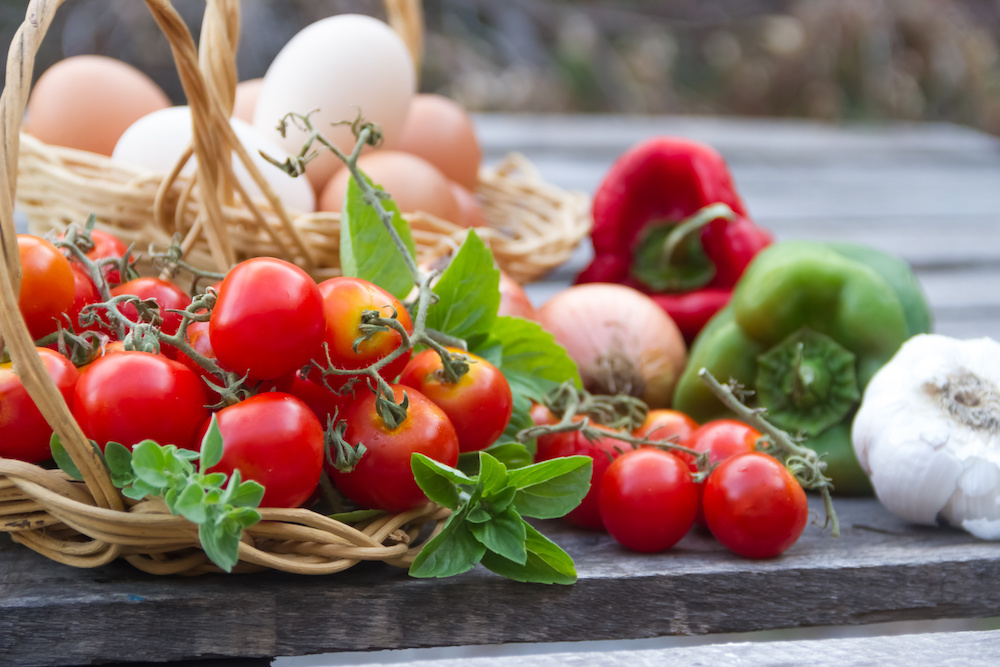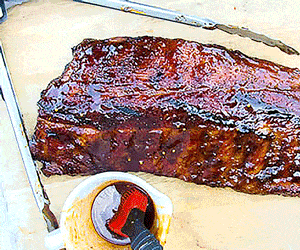Over the years, nutritionists, scientists and politicians have debated and flip-flopped on various food-related issues from GMOs to organic vegetables. Author and James Beard Award winner, Tamar Haspel has been researching and reporting on these issues for many years. Below, she dives into her top 10 truths about food, busting the myths with well-reasoned conclusions. This article originally appeared in the Washington Post and is reprinted with permission from the author. To hear Tamar Haspel back up her conclusions, check out this episode of Christopher Kimball’s Milk Street Radio. Tamar’s interview begins 24 minutes in (at the 24:46 mark). For more of her well-researched truths about food, check out Tamar’s take on food packages and their misleading claims.
I started writing this column 10 years ago this month. In that decade(!), I’ve had the great good fortune to learn about the intersection of food and science from some of the world’s leading scientists, doctors and academics. I’ve also learned that in food, as in every other aspect of our modern, complex lives, wrongness has staying power.
I’ve been trying to suss out true and false to the best of my inevitably human, imperfect ability, and for my 10th anniversary, I’m going to sum up 10 things I’m persuaded are true. Some are important, a few are trivial and all meet with staunch disagreement every time I air them.
See how many you agree with.
Not that I’m keeping score or anything.
1. Gene editing can be used for good
My very first column was about genetically modified organisms (GMOs), and I’m happy to say it feels dated now. Back then, the argument was primarily about herbicide-resistant corn and soy (which have undoubtedly given rise to herbicide-resistant weeds). But genetic engineering has been used to create disease-resistant cassava, blight-resistant American chestnut trees, camelina with the long-chain omega-3 fats that are otherwise found almost exclusively in marine sources, disease- and flood-tolerant rice, chickens that produce only female eggs (so 7 billion male chicks don’t have to be put through a grinder every year), a more nutritious purple tomato, blight-resistant potatoes and many more.
Technology is a tool. If I have a hammer, I can fix my neighbor’s roof or I can break his window. It’s the purpose, not the tool, that we need to focus on.
Speaking of which…
2. Diet soda is fine
Here’s an example of a use of technology that might actually help people. If you like sweet things, but not the calories that come with them, there’s a host of artificial versions that can deliver. Unfortunately, the nutrition community hates them and has been telling you, with virtually one voice, not to use them.
Yet, despite decades of trying, critics can’t really find a problem with them. So you get studies that show, to take a recent example, that sucralose (used in Splenda) is genotoxic. Scary! But dig in, as epidemiologist Gideon Meyerowitz-Katz did, and you find that the sucralose dosage was the equivalent of 50,000 cans of diet soda.
So, yeah, don’t drink 50,000 cans of diet soda, and ask yourself why researchers would design a study using amounts that are orders of magnitude over what a human would consume. One possible reason: They want to show harm.
3. Subsidies didn’t create our terrible diets
Yes, most farm subsidies go to corn and soy, two building blocks of cheap junk food. But economists I’ve spoken with believe that, at most, subsidies decreased prices of those by about 10 percent. And actual food is only about 15 percent of the cost of junk foods like, say, Twinkies. So we’re talking about a 1 to 2 percent price difference, which would be imperceptible to the consumer.
Vegetables are expensive because they’re way more expensive to grow than row crops such as corn, soy, oats, chickpeas and barley. A broccoli serving costs 10 times what a corn serving costs to grow. Ten times. Subsidies are a rounding error.
Speaking of vegetables…
4. Vegetables are a luxury product
They’re expensive to grow and incredibly resource-intensive. They get the highest level of fertilizer and pesticide applications, and they deliver nutrients without many calories. In an overweight society, that’s a plus, but if you widen the lens to the whole world, where we have to feed 8-plus billion, ideally without expanding agriculture’s footprint, crops that deliver nutrition and calories are ideal.
Whole grains, legumes, tubers, tree fruits, nuts. Those are the backbone of a diet good for both people and planet.
5. Organic is not the answer
I am a longtime supporter of organic agriculture. It’s more profitable for farmers, and that margin gives them wiggle room to experiment with lower-input ways of growing food, which I am wildly in favor of.
The problem, though, is the yield penalty. Estimates vary, but it’s safe to say that organic yields are about 20 percent lower than conventional, which means we need 25 percent more land to grow the same amount of food. Since land-use changes are a primary driver of climate change, that’s a non-starter. (Yes, some studies show that some organic yields match those of conventional, but to make that comparison you have to look at the highest yields in both the organic and conventional sectors, and organic never wins.)
I nevertheless support organic because the price premium makes the sector self-limiting. If too many farmers get into it, that’ll drive the price down and it will no longer be viable. So it’ll stay a niche. A valuable niche. But it won’t feed the world.
6. Food deserts don’t cause obesity
Of all the subjects I’ve tackled over the years, this is the one where I found the most agreement among experts. When you bring a supermarket into a food desert, there are no meaningful changes in health outcomes.
That doesn’t mean we shouldn’t bring supermarkets into food deserts! I want everyone to have access to decent food. But it won’t solve our obesity problem.
7. All eggs taste the same
There are two kinds of people on this issue: Those who have done blind taste tests and those who haven’t. Every blind taste test that I’ve ever seen finds that people can’t distinguish among white, brown, free-range, organic, and backyard eggs (from chickens, so don’t start ducking me). Yet people who haven’t done those tests continue to insist that they can.
Speaking of unpopular results from blind taste tests…
8. Tilapia is good
People can’t tell it from other kinds of fish. And, if you really can raise fish on poop, it’s the most sustainable food ever.
9 We know precious little about nutrition
The tools we have to explore the connection between diet and health are severely limited. Studies that follow large groups and track what they eat, and what diseases they get, can’t connect the dots between the two, and the controlled trials that try to connect those dots are necessarily small and short-term.
What we know about nutrition is dwarfed by what we don’t know. It’s like the blind men and the elephant; the one who’s feeling the trunk thinks an elephant is like a snake, and the one feeling the leg thinks an elephant is like a tree. We can’t see the whole nutritional elephant, given the tools at our disposal. So just eat a wide variety of whole-ish foods you enjoy, in quantities consistent with the weight you want to be.
And, yeah…
10. Carbs aren’t uniquely fattening
We have reams and reams of evidence. Low-carb diets outperform other diets by a few pounds in the short term, but all diets are equally ineffective in the long term.
And that’s my list.
I write about these issues because I’m trying to change your mind. But I’m also trying to change my own. Humans are terrible at mind-changing; confirmation bias rules our psyche, and it makes all of us lean in to wrong ideas. We’re just not wired to assess evidence and come to reasoned conclusions.
Since the column’s purpose is to assess evidence and come to reasoned conclusions, that scares the bejeezus out of me, and finding ways to avoid my own rabbit holes has been my top priority. There’s no way I can succeed 100 percent, being human and all, but I figure a decent metric of success is whether I ever change my mind.
It’s not easy! I’ve changed my mind about subsidizing fruit and veg (no to yes), whether the Food and Drug Administration should regulate dietary supplements (yes to no), whether low-fat diets work for weight loss (I wrote a whole book about why they do, and it’s wrong), and a few other things.
Being persuadable is way harder than being persuasive, and the best tool is engaging with smart people who challenge your point of view. This seems like a good time to thank the many of you who have talked to me for the column, sent interesting studies or made solid arguments that have helped me in that effort.
Thank you. I hope we can continue the conversation.



High quality websites are expensive to run. If you help us, we’ll pay you back bigtime with an ad-free experience and a lot of freebies!
Millions come to AmazingRibs.com every month for high quality tested recipes, tips on technique, science, mythbusting, product reviews, and inspiration. But it is expensive to run a website with more than 2,000 pages and we don’t have a big corporate partner to subsidize us.
Our most important source of sustenance is people who join our Pitmaster Club. But please don’t think of it as a donation. Members get MANY great benefits. We block all third-party ads, we give members free ebooks, magazines, interviews, webinars, more recipes, a monthly sweepstakes with prizes worth up to $2,000, discounts on products, and best of all a community of like-minded cooks free of flame wars. Click below to see all the benefits, take a free 30 day trial, and help keep this site alive.
Post comments and questions below
1) Please try the search box at the top of every page before you ask for help.
2) Try to post your question to the appropriate page.
3) Tell us everything we need to know to help such as the type of cooker and thermometer. Dial thermometers are often off by as much as 50°F so if you are not using a good digital thermometer we probably can’t help you with time and temp questions. Please read this article about thermometers.
4) If you are a member of the Pitmaster Club, your comments login is probably different.
5) Posts with links in them may not appear immediately.
Moderators